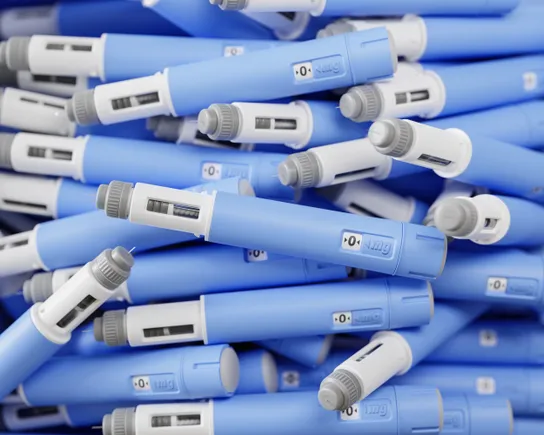Diabetes treatment has come a long way with the introduction of game-changing drugs like GLP-1s. However, ensuring that patients inject these medications properly has been a challenge. Despite the increasing number of prescriptions for updated diabetes medications, education about injection techniques has been lacking. Pasha Javadi, senior director of medical affairs at Embecta, a company specializing in syringes and pen needles for people with diabetes, emphasized the importance of proper injection techniques for maximizing the benefits of these drugs.
Javadi and a group of diabetes specialists recently updated best practices for insulin and noninsulin injection techniques to provide a more comprehensive and accessible standard across diabetes medications. This standardized approach not only benefits patients but also helps drugmakers by improving the effectiveness of their products.
In today’s rapidly evolving world of diabetes treatment, structured training for healthcare professionals and patient education are crucial for optimizing the outcomes of both traditional treatments like insulin and newer options like GLP-1s. The Forum for Injection Technique and Therapy Expert Recommendations (FITTER) has implemented updates based on new technologies and drugs to improve communication between healthcare professionals and patients regarding cutting-edge treatment procedures.
While adapting to new treatments presents educational challenges, it also presents new opportunities for patients. With the introduction of drugs like GLP-1s, patients have access to more treatment options, but the key lies in educating them on how to use these drugs effectively.
Patients often struggle with injection techniques, such as injecting the drug into the wrong area or not using the correct needles. This lack of knowledge can impact the effectiveness of the treatment. Therefore, it is essential for healthcare providers to educate patients on proper injection techniques to ensure they get the most out of their medications.
Ginny Blocki, senior vice president of strategy at Embecta, highlighted the importance of providing patients with the necessary knowledge to optimize their treatment. A short tutorial from a nurse or healthcare educator can make a significant difference in the patient’s experience and outcomes.
From a drugmaker’s perspective, implementing a structured injection education program is essential for enhancing the overall patient experience and ensuring the maximum benefit from the drug. Despite the emergence of new treatments like GLP-1s, insulin remains a vital solution for people with diabetes, especially those with Type 1 diabetes.
In conclusion, proper injection techniques play a crucial role in maximizing the benefits of diabetes medications. By providing patients with education and training on how to administer these drugs correctly, healthcare professionals and drugmakers can improve treatment outcomes and enhance the overall patient experience in the management of diabetes. Type 1 diabetes patients often find themselves caught between the buzz of the media and the reality of managing their condition in clinics. Despite the advancements in medication and technology, many individuals with Type 1 diabetes still rely on traditional insulin products for their treatment. This is where companies like Embecta come into play, bridging the gap between old and new in the diabetes management landscape.
Embecta, with a history spanning over 100 years, prides itself on staying updated with the latest advancements in insulin delivery methods. From pen injectors to vials and syringes, the company ensures that patients have access to a variety of options that suit their individual needs. This commitment to versatility is crucial in a market where preferences and requirements vary greatly among patients.
In the rapidly evolving pharmaceutical and medical technology industries, collaboration is key. It is essential for companies like Embecta to work hand in hand with pharmaceutical companies to educate patients on the best ways to administer their medication. By fostering a partnership between all stakeholders, including patients, healthcare providers, and industry experts, the goal of enhancing the overall drug delivery experience can be achieved.
While the focus may often be on newer, more innovative products, it is important not to overlook the value of traditional insulin delivery methods. Even with the introduction of cutting-edge technologies like insulin patch pumps, some products may not align with market priorities and patient needs. Embecta’s decision to discontinue its insulin patch pump program, despite FDA clearance, reflects the company’s dedication to providing solutions that truly benefit patients.
Ultimately, the key to successful diabetes management lies in understanding and addressing the unique needs of each individual. Embecta recognizes that there is no one-size-fits-all approach when it comes to insulin delivery. By offering a range of options and personalized support, the company aims to empower patients to take control of their health and achieve a better injection experience.
In conclusion, the journey of managing Type 1 diabetes goes beyond just getting a prescription. It involves a comprehensive understanding of the patient’s needs and ensuring that they have the tools and knowledge to navigate their treatment effectively. With a focus on innovation, collaboration, and patient-centered care, companies like Embecta play a crucial role in supporting individuals with Type 1 diabetes on their path to better health.


